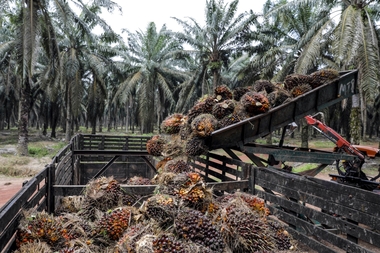
In the vast landscape of global trade, Indonesia’s palm oil industry stands as a towering figure, commanding attention and shaping economies. From the lush plantations to the bustling ports, the journey of Indonesian palm oil to international markets is a testament to both its economic significance and environmental controversies.
The Powerhouse of Palm Oil: Indonesia’s Dominance
Indonesia proudly holds the title of the world’s largest producer of palm oil, with a market share surpassing its closest competitors. The nation’s favorable climate and fertile soil create optimal conditions for cultivating oil palm trees, resulting in high yields and consistent supply.
Navigating Challenges: Sustainability and Environmental Concerns
Amidst its economic prowess, Indonesia’s palm oil industry faces scrutiny regarding its environmental impact. Deforestation, habitat destruction, and greenhouse gas emissions have sparked debates worldwide, prompting calls for sustainable practices and responsible sourcing.
The Road to Global Markets: Indonesia’s Palm Oil Export Strategy
Indonesia’s palm oil export strategy is multifaceted, leveraging both traditional trade routes and emerging markets. With a keen eye on diversification, Indonesian exporters target key regions such as Asia, Europe, and North America, adapting to varying consumer demands and regulatory frameworks.
Meeting Quality Standards: Ensuring Product Integrity
Maintaining high-quality standards is paramount for Indonesia’s palm oil exporters to secure their position in competitive markets. From rigorous quality control measures at production sites to certifications like RSPO (Roundtable on Sustainable Palm Oil), adherence to global standards is non-negotiable.
Sustainable Practices: Balancing Profitability and Responsibility
In response to growing environmental concerns, Indonesian palm oil producers are embracing sustainable practices to mitigate negative impacts. Initiatives such as zero-deforestation commitments, land use planning, and smallholder support programs aim to foster a more sustainable palm oil industry.
Embracing Innovation: Technology’s Role in Modernizing the Industry
The digital age brings opportunities for innovation within Indonesia’s palm oil sector. From precision agriculture and drone surveillance to blockchain-enabled traceability, technology is revolutionizing every aspect of the palm oil supply chain, enhancing efficiency and transparency.
Future Outlook: Navigating Towards a Sustainable Future
As Indonesia’s palm oil industry continues to evolve, navigating the path towards sustainability remains paramount. Through collaboration among stakeholders, investment in research and development, and adherence to best practices, Indonesia aims to redefine its role as a global leader in sustainable palm oil production and export.
Conclusion: A Promising Horizon for Indonesia’s Palm Oil Export
In conclusion, Indonesia’s palm oil export sector stands at the crossroads of opportunity and responsibility. By embracing sustainable practices, adhering to quality standards, and leveraging innovation, Indonesia can unlock its full potential as a global powerhouse in the palm oil industry, ensuring a prosperous and sustainable future for generations to come.






